This article was medically reviewed by Luba Lee, FNP-BC, MS and by wikiHow staff writer, Amber Crain. Luba Lee, FNP-BC is a Board-Certified Family Nurse Practitioner (FNP) and educator in Tennessee with over a decade of clinical experience. Luba has certifications in Pediatric Advanced Life Support (PALS), Emergency Medicine, Advanced Cardiac Life Support (ACLS), Team Building, and Critical Care Nursing. She received her Master of Science in Nursing (MSN) from the University of Tennessee in 2006.
There are 32 references cited in this article, which can be found at the bottom of the page.
wikiHow marks an article as reader-approved once it receives enough positive feedback. In this case, 100% of readers who voted found the article helpful, earning it our reader-approved status.
This article has been viewed 109,320 times.
Improving your health is an awesome goal, but there are so many factors to consider. Where do you start? Don't worry—we've done the research and compiled a list of tips and tricks you can use to starting improving your health today. Many of these are ideas are super easy to incorporate and even small changes can make a big difference!
Steps
Expert Q&A
-
QuestionWhat can I do to make my heart healthier?
 Shervin Eshaghian, MDDr. Shervin Eshaghian is a Board Certified cardiologist and the owner of Beverly Hills Cardiology based in the Los Angeles, California metro area. Dr. Eshaghian has over 13 years of cardiology experience, including serving on the medical staff at Cedars-Sinai Medical Center. He holds a BS in Psycho-Biology from the University of California, Los Angeles (UCLA) and an MD from the Albert Einstein College of Medicine. Furthermore, Dr. Eshaghian completed an internship, residency, and fellowship at Cedars Sinai Medical Center, where he was awarded the Leo Rigler Outstanding Academic Achievement Award and the Elliot Corday Fellow of the Year Award.
Shervin Eshaghian, MDDr. Shervin Eshaghian is a Board Certified cardiologist and the owner of Beverly Hills Cardiology based in the Los Angeles, California metro area. Dr. Eshaghian has over 13 years of cardiology experience, including serving on the medical staff at Cedars-Sinai Medical Center. He holds a BS in Psycho-Biology from the University of California, Los Angeles (UCLA) and an MD from the Albert Einstein College of Medicine. Furthermore, Dr. Eshaghian completed an internship, residency, and fellowship at Cedars Sinai Medical Center, where he was awarded the Leo Rigler Outstanding Academic Achievement Award and the Elliot Corday Fellow of the Year Award.
Board Certified Cardiologist If you smoke any tobacco products, do your best to quit since it can lead to heart disease.
If you smoke any tobacco products, do your best to quit since it can lead to heart disease. -
QuestionWhat are some exercises I can do for a healthy gut?
 Dale Prokupek, MDDale Prokupek, MD is a board-certified Internist and Gastroenterologist who runs a private practice based in Los Angeles, California. Dr. Prokupek is also a staff physician at Cedars-Sinai Medical Center and an associate clinical professor of medicine at the Geffen School of Medicine at the University of California, Los Angeles (UCLA). Dr. Prokupek has over 30 years of medical experience and specializes in the diagnosis and treatment of diseases of the liver, stomach, and colon, including chronic hepatitis C, colon cancer, hemorrhoids, anal condyloma, and digestive diseases related to chronic immune deficiency. He holds a BS in Zoology from the University of Wisconsin – Madison and an MD from the Medical College of Wisconsin. He completed an internal medicine residency at Cedars-Sinai Medical Center and a gastroenterology fellowship at the UCLA Geffen School of Medicine.
Dale Prokupek, MDDale Prokupek, MD is a board-certified Internist and Gastroenterologist who runs a private practice based in Los Angeles, California. Dr. Prokupek is also a staff physician at Cedars-Sinai Medical Center and an associate clinical professor of medicine at the Geffen School of Medicine at the University of California, Los Angeles (UCLA). Dr. Prokupek has over 30 years of medical experience and specializes in the diagnosis and treatment of diseases of the liver, stomach, and colon, including chronic hepatitis C, colon cancer, hemorrhoids, anal condyloma, and digestive diseases related to chronic immune deficiency. He holds a BS in Zoology from the University of Wisconsin – Madison and an MD from the Medical College of Wisconsin. He completed an internal medicine residency at Cedars-Sinai Medical Center and a gastroenterology fellowship at the UCLA Geffen School of Medicine.
Board Certified Internist & Gastroenterologist Exercise, in general, is imperative for a healthy gut because when we exercise, the motility of our GI tract increases. In other words, people who don't exercise get very constipated because not exercising and leading a sedentary lifestyle paralyzes your GI tract. So, it's very important for people that are constipated to exercise because it'll stimulate their colon It also can be very healthy for your GI tract to do certain yoga poses (for example, a lot of the twisting poses in yoga stimulate forward propulsion of your GI tract which the goal is to clear out your colon every 48 hours or so, and those twisting types of yoga poses will help you do that).
Exercise, in general, is imperative for a healthy gut because when we exercise, the motility of our GI tract increases. In other words, people who don't exercise get very constipated because not exercising and leading a sedentary lifestyle paralyzes your GI tract. So, it's very important for people that are constipated to exercise because it'll stimulate their colon It also can be very healthy for your GI tract to do certain yoga poses (for example, a lot of the twisting poses in yoga stimulate forward propulsion of your GI tract which the goal is to clear out your colon every 48 hours or so, and those twisting types of yoga poses will help you do that).
References
- ↑ https://www.ncbi.nlm.nih.gov/pmc/articles/PMC5981243/
- ↑ https://www.ncbi.nlm.nih.gov/pmc/articles/PMC4425030/
- ↑ https://health.clevelandclinic.org/how-to-pick-the-best-probiotic-for-you/
- ↑ https://www.hopkinsmedicine.org/health/wellness-and-prevention/the-brain-gut-connection
- ↑ https://www.betterhealth.vic.gov.au/health/HealthyLiving/herbs#health-benefits-of-herbs
- ↑ https://pubmed.ncbi.nlm.nih.gov/30651162/
- ↑ https://health.gov/sites/default/files/2019-10/DGA_Healthy-Eating-Pattern.pdf
- ↑ http://www.fda.gov/Food/ResourcesForYou/Consumers/ucm267499.htm
- ↑ https://www.health.harvard.edu/staying-healthy/improve-your-health-by-starting-with-one-simple-change
- ↑ https://www.mayoclinic.org/healthy-lifestyle/nutrition-and-healthy-eating/in-depth/water/art-20044256
- ↑ https://www.betterhealth.vic.gov.au/health/conditionsandtreatments/sleep-hygiene
- ↑ https://www.cdc.gov/sleep/about_sleep/sleep_hygiene.html
- ↑ https://www.cdc.gov/sleep/about_sleep/sleep_hygiene.html
- ↑ https://health.clevelandclinic.org/what-is-the-ideal-sleeping-temperature-for-my-bedroom/
- ↑ https://www.health.harvard.edu/staying-healthy/improve-your-health-by-starting-with-one-simple-change
- ↑ https://www.betterhealth.vic.gov.au/health/healthyliving/Physical-activity-how-to-get-active-when-you-are-busy
- ↑ http://www.cdc.gov/healthyweight/physical_activity/
- ↑ https://medlineplus.gov/howmuchexercisedoineed.html
- ↑ https://www.cdc.gov/physicalactivity/basics/adults/index.htm
- ↑ https://www.nimh.nih.gov/health/publications/stress/
- ↑ http://www.helpguide.org/articles/stress/stress-management.htm
- ↑ http://www.cdc.gov/handwashing/when-how-handwashing.html
- ↑ https://www.health.harvard.edu/healthbeat/10-small-steps-for-better-heart-health
- ↑ https://health.clevelandclinic.org/the-truth-about-dry-brushing-and-what-it-does-for-you/
- ↑ https://www.mayoclinic.org/diseases-conditions/heart-disease/in-depth/red-wine/art-20048281
- ↑ https://www.health.harvard.edu/blog/is-red-wine-good-actually-for-your-heart-2018021913285
- ↑ https://www.myhealth.va.gov/mhv-portal-web/ss20190612-boost-your-brain-health
- ↑ https://www.health.harvard.edu/staying-healthy/why-good-posture-matters
- ↑ https://health.gov/myhealthfinder/topics/doctor-visits/regular-checkups/get-your-medicare-wellness-visit-every-year
- ↑ https://health.gov/myhealthfinder/topics/doctor-visits/screening-tests/get-screened
- ↑ https://www.fda.gov/consumers/consumer-updates/want-quit-smoking-fda-approved-products-can-help
- ↑ https://smokefree.gov/quit-smoking/why-you-should-quit/benefits-of-quitting
- ↑ https://www.cdc.gov/tobacco/campaign/tips/quit-smoking/index.html
About This Article
There are a few simple lifestyle changes you can make to improve your health. Try to eat a balanced diet that’s low in fat and sugar. The majority of your diet should be made up of fruit and vegetables, whole grains, and lean protein. You should also aim to exercise for about 2.5 hours a week, but start off with whatever you can manage and gradually increase your time. There are plenty of fun ways to exercise, like walking, dancing, hiking, biking, and swimming. Remember to wash your hands regularly throughout the day and before eating, since this will protect you from bacteria and infections. Try to take time to relax each day to help reduce your stress levels. Lower stress will have a positive effect on your physical health. For more advice from our Medical co-author, including how to improve your sleep quality, read on!

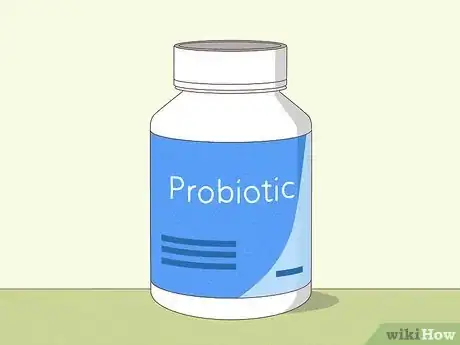

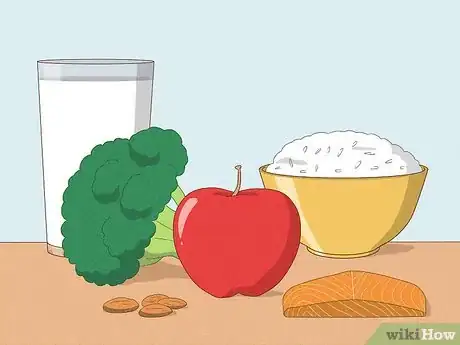
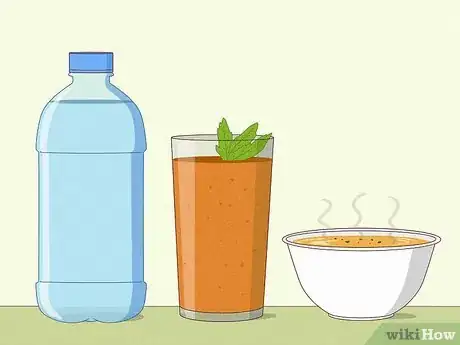
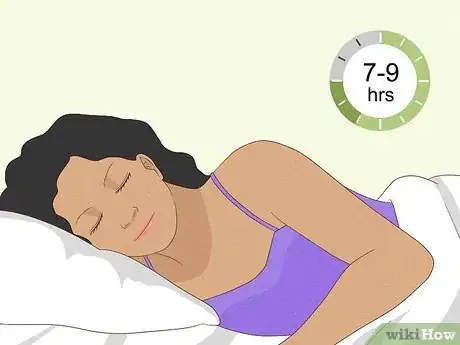









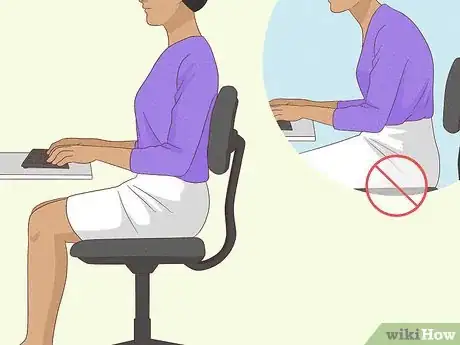
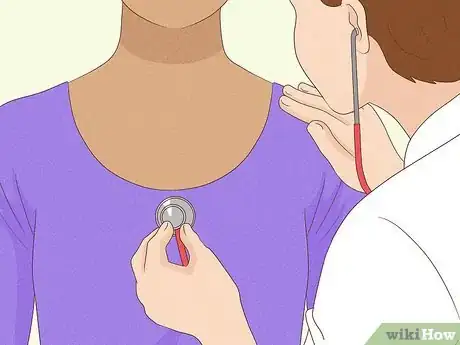
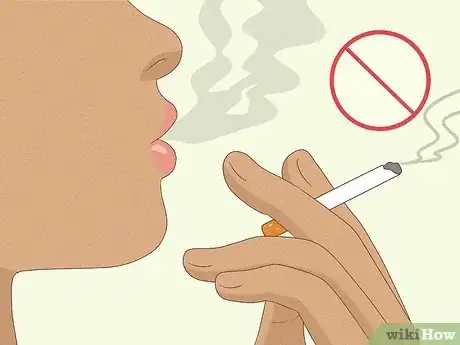



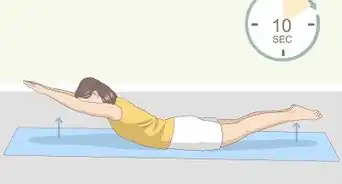




















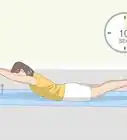



































Medical Disclaimer
The content of this article is not intended to be a substitute for professional medical advice, examination, diagnosis, or treatment. You should always contact your doctor or other qualified healthcare professional before starting, changing, or stopping any kind of health treatment.
Read More...